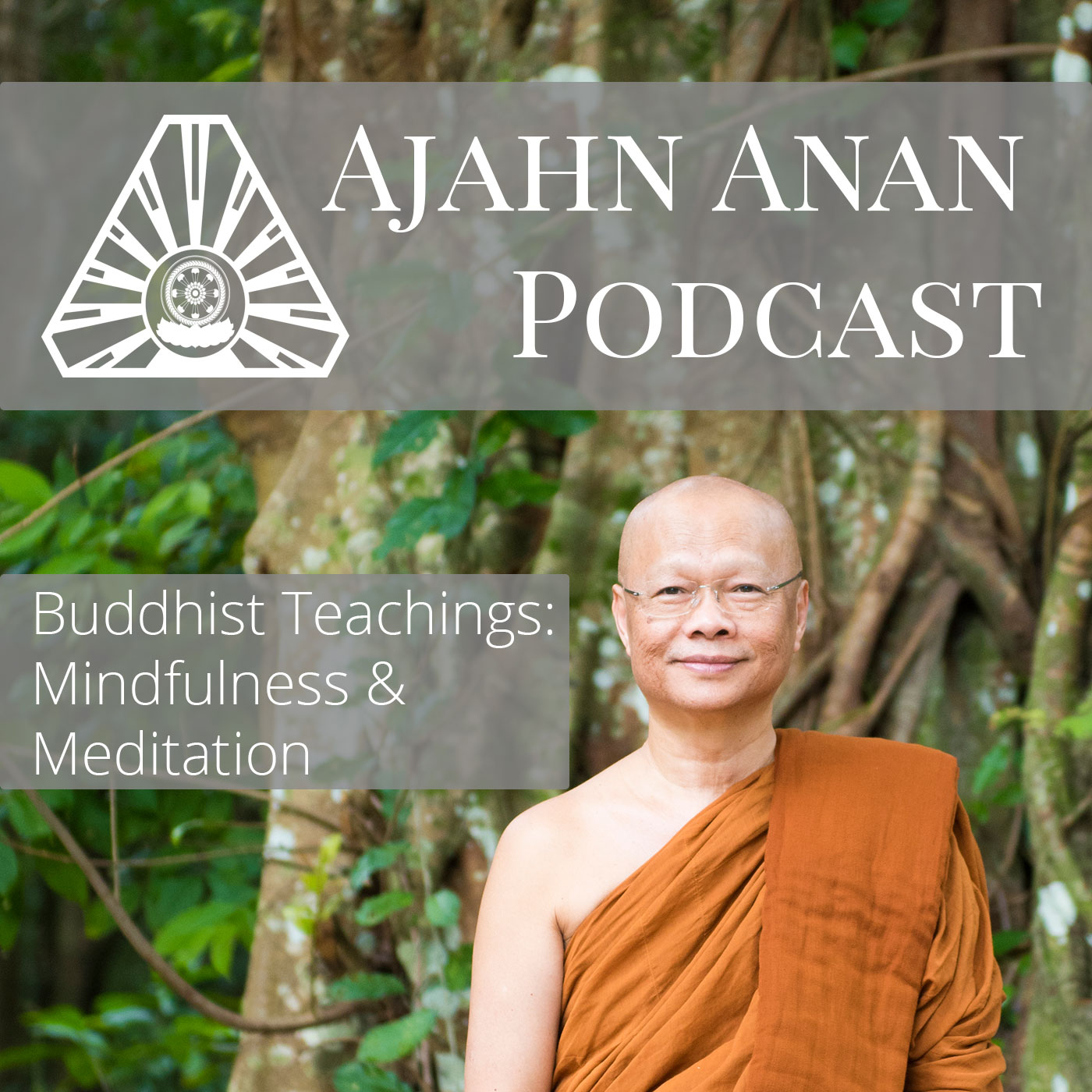
In this second half of the talk, Ajahn Anan speaks about how penetrating insight into Nama-Rupa, Name-and-Form, gives rise to a vision of Awakening.

In this first half of the talk, Ajahn Anan explains how we can open our Eye of Dhamma, just as Ven. Añña Kondañña did.

In this talk, Ajahn Anan speaks about how, through using and “attaching” to certain aspects of the practice, such as formal meditation, we reach a point where everything, including the quality of knowing itself, must be let go of.

In this videoconference talk from 7 August 2020, Ajahn Anan discusses working with guilt/the feeling that one has done wrong.
One can read talk transcripts with Q and A here: https://watmarpjan.org/en/dhamma-reflections/

In this videoconference talk from 5 January 2018, Ajahn Anan discusses magnifying wholesomeness or unwholesomeness with technology, among other points of Dhamma.
Note: One can read this talk transcript with Q and A here: https://watmarpjan.org/en/using-youtube-wisely/

In this talk, Ajahn Anan speaks about how to use the three sources of merit – giving, morality, and meditation – to raise the mind to a level where it can develop dispassion for the conditioned world and experience the deathless.

In this talk, Ajahn Anan speaks about how contemplating the fact that all beings are subject to their kamma can help us forgive their unwholesome actions.

In this videoconference talk from 31 July 2020, Ajahn Anan discusses the successful management of one’s time.
One can read talk transcripts with Q and A here: https://watmarpjan.org/en/dhamma-reflections/

In this talk Ajahn Anan teaches us about the nature of the human world–a place of both ease and strife stuck in the middle of the realms. He also talks on what lies above and below us in the cosmos.
If you would like to join Ajahn Anan and the Wat Marp Jan Community online for daily chanting, meditation, and a translated Dhamma talk every day from 7-9 p.m. Indochina Time (Bangkok, GMT + 7), you can send an email to wmjdhamma@gmail.com for the link.
Given on May 20th, 2020

In this videoconference talk from 24 July 2020, Ajahn Anan discusses using our time well.
One can read talk transcripts with Q and A here: https://watmarpjan.org/en/dhamma-reflections/
